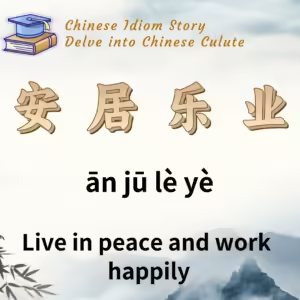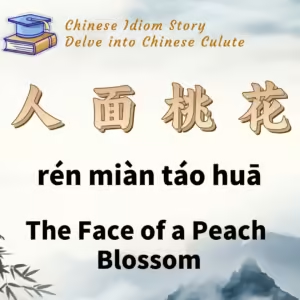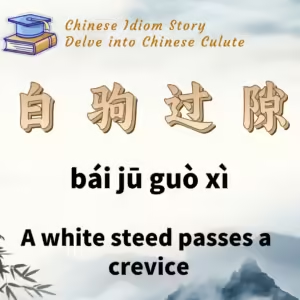
Chinese Idiom: 安居乐业 (An Ju Le Ye)
English Translation: Live in peace and work happily
pīn yīn: ān jū lè yè
Idiom Meaning: This idiom refers to living and working in a stable and joyful environment. It emphasizes a sense of security and contentment in both life and occupation.
Historical Source: 《老子》 (Tao Te Ching), attributed to Laozi, a prominent philosopher and thinker of the Spring and Autumn period.
Idiom Story:
Laozi, known as Li Er, is a revered figure in Chinese philosophy. Legend has it that he was born as an old man with white hair and a long beard, which is why people called him “Laozi” (meaning “Old Master”). It is also said that he was born under a plum tree, giving him the surname “Li,” and his notably large ears inspired his name “Er.”
Discontent with the social upheaval of his time, Laozi opposed the prevailing revolutionary currents and yearned for a return to simpler ways. He romanticized the primitive society of the past, believing that advancements in material wealth and culture had corrupted people’s inherent purity, leading to suffering. Thus, he envisioned an ideal society characterized by “小国寡民” (small country and few people).
In Laozi’s vision of a “small country and few people,” he described a society where:
- The nation is small, and the population is sparse.
- Even if there are many tools, they are not utilized.
- People are discouraged from risking their lives or migrating far away.
- Vehicles and boats exist, but no one uses them.
- Weapons are available, but there is no need for conflict.
He advocated for a return to simplicity, where people live comfortably, eat well, wear nice clothes, and are content with traditional customs. In such a society, neighboring countries can see and hear each other, yet the people live their entire lives without interacting.
Through this philosophy, the idiom “安居乐业” reflects Laozi’s ideals of a harmonious life, emphasizing peace, stability, and the joy of labor in a community that values simplicity and contentment.






